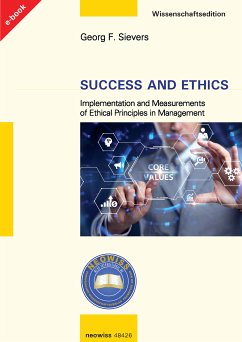In many cases, globalization and internationalization in the competitive environment mean that the call for honesty, justice and integrity is becoming ever louder in the corporate environment. However, it is often questioned whether the resulting primarily economic actions are compatible with ethical standards in the company or - to put it more concretely - even mutually exclusive. The question of whether and how a company, its employees and above all its (top) management can or may assume moral responsibility is at the center of the discussion. In this context, the relevant literature postulates that in an "ideal world", corporate ethics that prescribe guidelines ("Code of Conduct") and standards for ethical dealings in companies would be superfluous, since here, due to the complete transparency of the markets, the actions themselves would relativize the egoisms of market participants. However, since this can at best only be the case in a model world, corporate rules of conduct are becoming increasingly important. These rules must take into account not only the requirements of the company and the values of the individual, but also the values that modern society and various stakeholders place on the company. This also means that companies have a responsibility to human capital, so that employees enjoy their work and perform it to a high standard of quality.
Dieser Download kann aus rechtlichen Gründen nur mit Rechnungsadresse in A, B, BG, CY, CZ, D, DK, EW, E, FIN, F, GR, HR, H, IRL, I, LT, L, LR, M, NL, PL, P, R, S, SLO, SK ausgeliefert werden.









